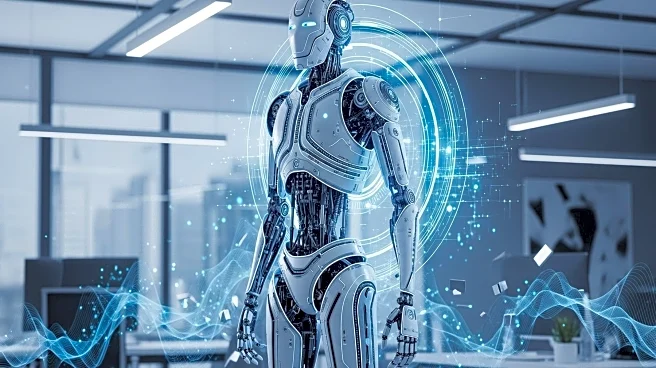What's Happening?
Deloitte has announced the integration of Anthropic's AI tool, Claude, across its workforce of 500,000 employees. This move comes as part of a broader trend among companies to adopt AI technologies to enhance operational efficiency. However, the rollout coincides with a setback for Deloitte, as the Australian government demanded a refund for a contract due to inaccuracies in an AI-generated report. This incident highlights the challenges companies face in responsibly implementing AI tools, as they race to leverage AI's potential benefits while managing its risks.
Why It's Important?
The integration of AI tools like Claude by Deloitte signifies a major shift in how large enterprises are approaching technology to streamline operations and improve productivity. This development could set a precedent for other companies considering similar AI implementations. However, the refund incident underscores the importance of ensuring AI-generated outputs are accurate and reliable, which is crucial for maintaining trust and credibility. As AI becomes more prevalent in business processes, companies must balance innovation with ethical and responsible use, impacting stakeholders across industries.
What's Next?
Deloitte's experience may prompt other companies to reassess their AI strategies, focusing on improving the accuracy and reliability of AI-generated content. Regulatory bodies might increase scrutiny on AI implementations, leading to more stringent guidelines and standards. Companies could invest in training employees to better understand and manage AI tools, ensuring responsible usage. The broader industry may see a push towards developing AI technologies that prioritize transparency and accountability, influencing future AI adoption trends.
Beyond the Headlines
The ethical implications of AI in business are becoming increasingly significant. As AI tools are integrated into decision-making processes, companies must address concerns about bias, transparency, and accountability. This development could lead to a cultural shift in corporate governance, emphasizing ethical AI practices. Long-term, the integration of AI might redefine job roles and skills required in the workforce, necessitating continuous learning and adaptation.









